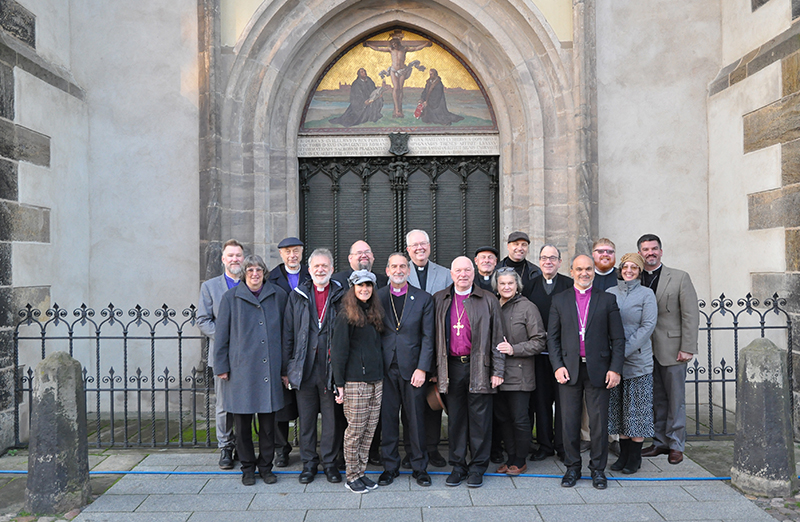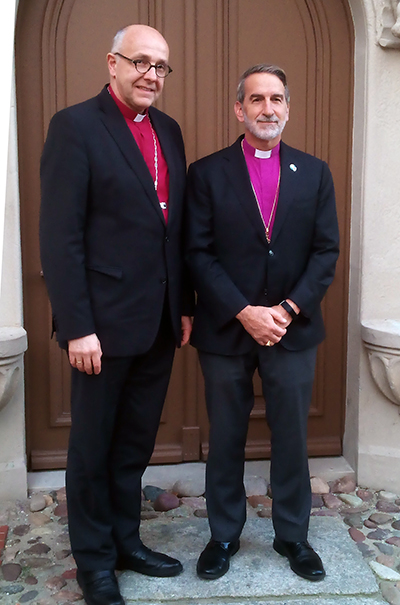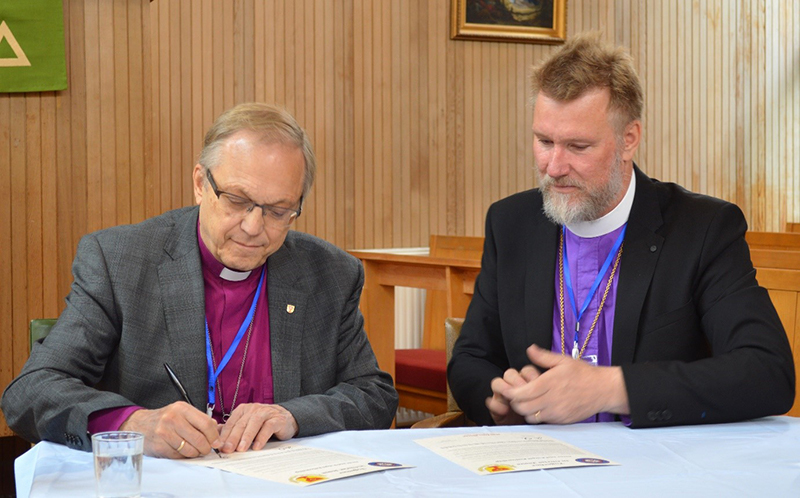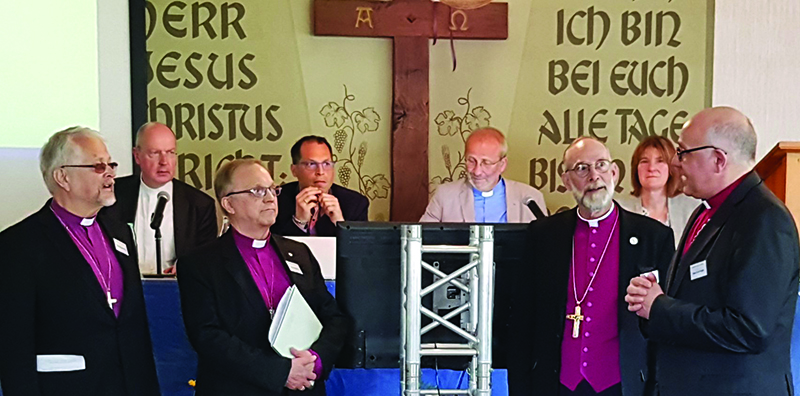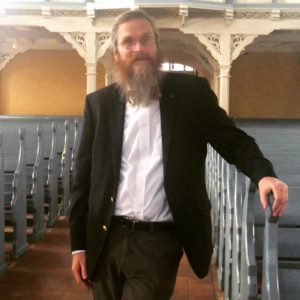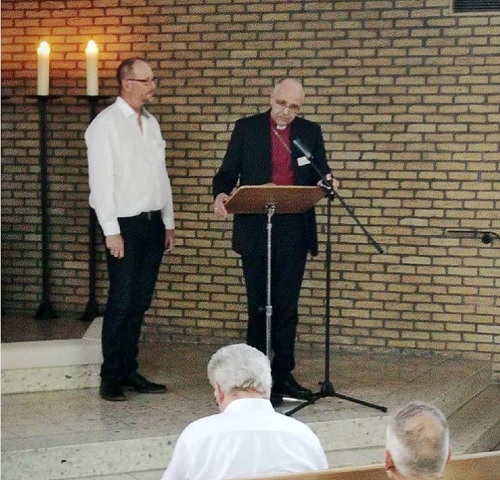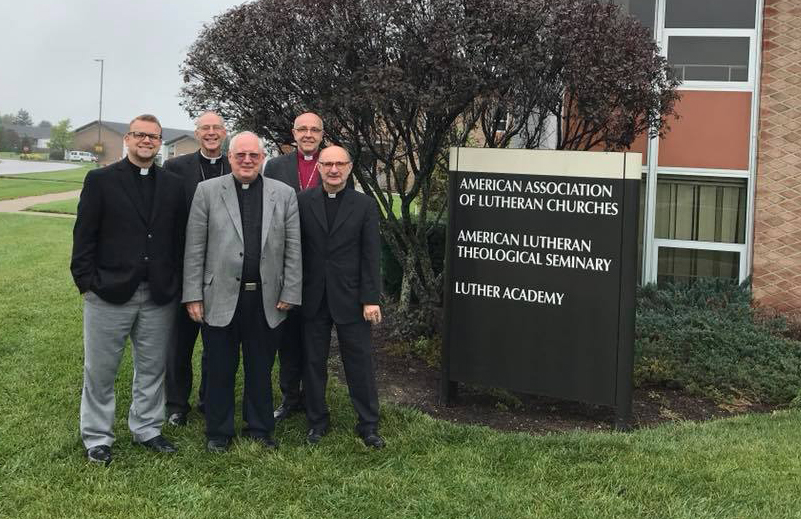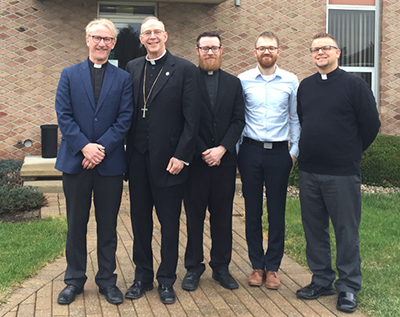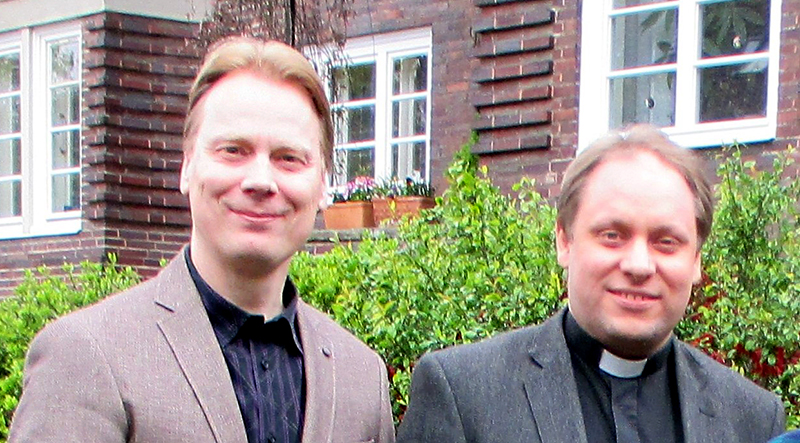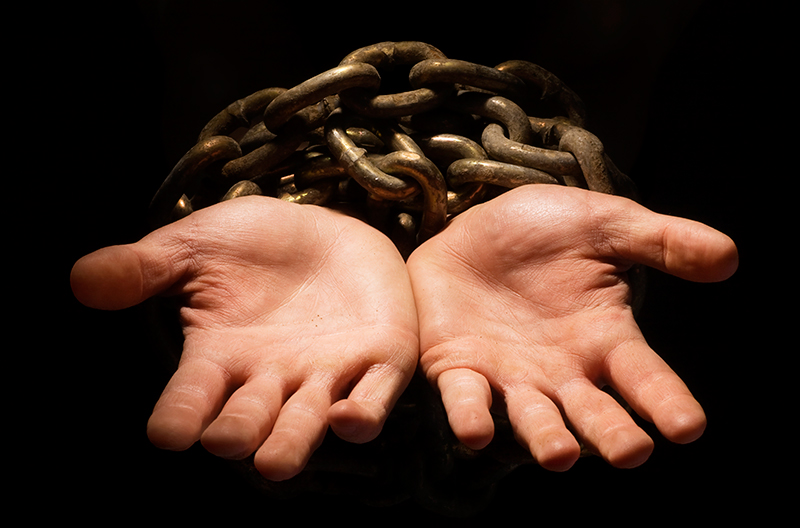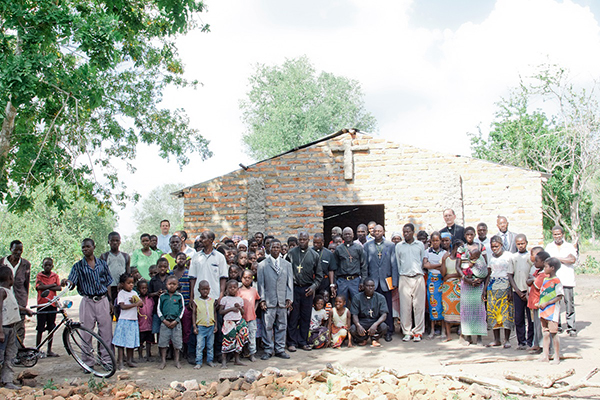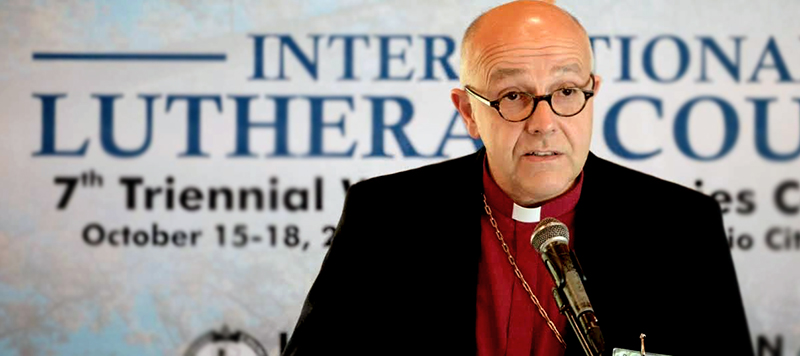
Bishop Hans-Jörg Voigt.
GERMANY – On February 26, 2020—Ash Wednesday—Germany’s Federal Constitutional Court declared that all people have a constitutional right to end their life in a manner of their own choosing and to seek outside help in doing so. The courts further ruled that access to assisted suicide should not be limited to those suffering from an incurable condition.
In response to the ruling, Bishop Hans-Jörg Voigt of the Independent Evangelical Lutheran Church in Germany (SELK) has issued a letter arguing that “No one has the right to decide the circumstances of his own death.” Bishop Voigt also serves as Chairman of the International Lutheran Council (ILC), a global association of confessional Lutheran churches.
While the letter responds specifically to the declaration of Germany’s highest court, the issues it addresses—euthanasia and assisted suicide—are being increasingly considered in many areas of the world. In Canada, for example, the federal government has recently announced it will expand physician assisted suicide and euthanasia to allow those suffering from mental illnesses, and those not facing imminent death, to seek aid in dying.
Those seeking a Christian response to end of life issues faithful to Scripture will find Bishop’s Voigt’s words helpful. The letter appears below. (You can also read it in German here.)
———————–
“NO ONE HAS THE RIGHT TO DECIDE THE CIRCUMSTANCES OF HIS OWN DEATH”
Death and Birth are not Subject to Human Decisions – for the Sake of Man’s Dignity
Statement by the presiding clergyman of the Independent Evangelical Lutheran Church in Germany (SELK), Bishop Hans-Jörg Voigt D.D. (Hannover), concerning the verdict of Germany’s Constitutional Court of February 26, 2020 regarding “a person’s right to decide on the circumstances of one’s death”.
First Preliminary Remark
The Federal Constitutional Court (“Bundesverfassungsgericht” or BVG) is Germany’s highest constitutional authority and deserves our utmost respect. The welfare of our state, its services, its advantages and their protection which we as citizens and as Christians enjoy every day, is very much dependent on this respect; because, according to Holy Scripture and the Lutheran Confessions, all legitimate state authority is given and willed by God. Thus it is difficult for me to criticize yesterday’s verdict by the Court.
Second Preliminary Remark
We ought to exercise the highest regard and the utmost restraint when we talk about the distress sick people feel and their fervent wish to die. The kind of suffering some people have to endure for years surpasses a healthy person’s way of thinking. In such times of suffering almost every person will likely consider thoughts how actively to end one’s own life. And even those people who will turn such thoughts into action deserve our Christian love and final accompaniment. Dr. Martin Luther often expressed the view that people who committed suicide should be given a Christian burial, because they “did not do it easily” and likely were in an internally vulnerable situation, and were “as if overcome by a robber in the forest.”
There is no “Right to Decide on one’s Own Death”
In its verdict of February 26, 2020 the Constitutional Court established a new legal principle when it stated in Point 1: “The general principle to define your own personality includes, as an expression of a person’s autonomy, the right to decide about one’s own way of dying.”
The Basic Law/Constitution of the Federal Republic of Germany states in Par. 2, Sect. 1: “Every-one has the right to freely live out his personality, provided he does not violate the rights of others and does not transgress the constitutional order or the moral law.” Here the BVG makes a connection to Par 1., Sect. 1 of the German Constitution, where we read: “The dignity of the person is inviolable. To honour and protect it is the duty of all state power.”
At no point does the German Constitution posit a “right of self-determined dying.” This statement could possibly be rightly understood in reference to the manner of a person’s death, e.g. that it is a matter of one’s free determination to die with or without therapy, with or without pain medication. But the sentence that follows in the verdict under Sect. b states: “The right to a self-determined death includes the freedom to take one’s own life.” Within its context this sentence claims that there is a right to determine one’s own time of death. This claim arises out of nowhere. And it is new and wrong, and it is not in accord with the spirit of the German Constitution, as I will try to show hereafter.
This Verdict contravenes the Fifth Commandment
“You shall not murder”—so reads the Fifth of the Ten Commandments. This Commandment applies in regard to the life of others and also in regard to my own life. The dignity of man is based on the uniqueness of his being born. And that also implies the non-violability of his end. That man cannot in principle decide his own death is one of the reasons for his dignity.
These days various commentaries made the point that religious convictions cannot be applied to the general public in a secular state. But the Constitution of the Federal Republic does precisely that. The very first sentence of the preamble defines its background: “In full awareness of our responsibility before God and man…” The Constitution’s reference to God is the reminder that there is a higher law, so to speak, “the connection with on high”; human law needs to have a connection to divine law, to prevent it from ending up in arbitrariness.
The legal philosopher Ernst-Wolfgang Böckenförde has defined the ethical-moral connection this way: “The secular libertarian state is dependent on presuppositions that it cannot guarantee of its own.” Because the verdict of the BVG contravenes the ethical standard set by the Fifth Commandment—which is posited not only in the Judeo-Christian religion—the Court has cut itself off from the reference to the Divine in the Constitution.
Legal Uncertainty for Physicians and Supporters is not the Real Problem
Legal flaws and uncertainties as they derive out of Par. 217 of the Law until now prohibiting commercial support for suicide since December 3, 2015 are not the real problem. It is much more fundamental, because to posit a “right of self-determined dying” and the freedom to take one’s own life, there might then arise as a consequence the duty for the state to provide the necessary conditions for that right.
Up until now self-inflicted death was a taboo. Now that it has fallen, we can expect a subtle pressure on terminally ill patients to follow the expectations of their relatives and friends—even though they may be wrongly assumed—and have them take their own life. The first two articles of the German Constitution set forth the ethical position of a “culture of life.” Its present subsequent formulation now defines a “culture of death.”
I believe that February 26, 2020 will enter into the legal history of the Federal Republic of Germany as a kind of Ash Wednesday.
Hans-Jörg Voigt, D.D.
Bishop, Selbständige Evangelisch-Lutherische Kirche (SELK)
Hannover, Germany
———————
Translation by Rev. Dr. Wilhelm Torgerson (Windsor, Canada)

